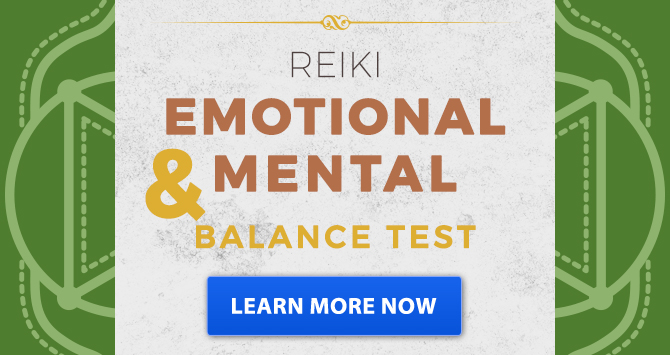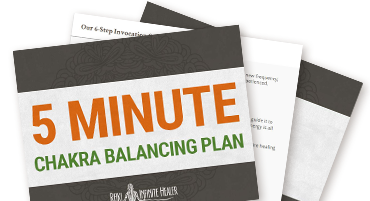Emotional Trauma

In a past blog post, I wrote about the six situations that frequently cause emotional pain.
I’ve since received dozens of questions and comments about the specifics of trauma.
Now, even though I’ve been a Reiki healer for over a decade, trauma is still a particularly sensitive topic.
But let’s start with the basics…
...if you’ve experienced an extremely stressful or disturbing event that’s left you feeling helpless and emotionally out of control, you may have been traumatized.
Psychological trauma can leave you struggling with upsetting emotions, memories, and anxiety that won’t go away.
It can also leave you feeling numb, disconnected, and unable to trust other people. When bad things happen, it can take a while to get over the pain and feel safe again.
But there’s good news…
...whether the trauma happened years ago or yesterday, you can make healing changes and move on with your life.
What is emotional and psychological trauma?
Emotional and psychological trauma is the result of extraordinarily stressful events that shatter your sense of security, making you feel helpless in a dangerous world.
This varies differently from regular stress, which may be temporary.
Trauma creates a lifelong pain.

The more frightened and helpless you feel, the more likely you are to be traumatized.
I’ve gone over the six most common events that cause emotional pain in this article here, but to elucidate further, emotional and psychological trauma can be caused by:
- an accident
- serious injury
- a negative environment
- natural disaster
- sudden attack
- surgery
- death
- and much, much more...
Chances are that you know someone who has experienced this kind of event before.
The repercussions of trauma are many. Everything from lasting physical pain and paralysis to emotional detachment...I’ve seen many different cases.
Since traumatic events are all experiences subjectively, there is no “right” or “wrong” way to think or respond about a situation. Judging one’s own or another’s experience may cause more suffering to endure rather than heal…
...but there are ways to heal from trauma. To find out whether you’ve been traumatized or experiencing high-levels of stress, take my Emotional and Mental Balance Test here. You’ll get the results IMMEDIATELY after taking it.
Recovering from Trauma
Whether or not a traumatic event involves death, survivors must cope with the loss, at least temporarily, of their sense of safety. The natural reaction to this loss is grief.
Like people who have lost a loved one, trauma survivors go through a grieving process…
...and before you begin trying to repair the damage of trauma, make sure that you give it enough time to pass.
If you turn to others during this time, you will find a support group to hold you stable as your energy and pain slowly dissipate.

In the following sections, I will explain several practices that I recommend my clients and students whom have been affected by trauma follow.
They’ve seen great results...so if you are or know someone who has been affected by trauma, please implement these in your life.
Move
Trauma disrupts your body’s natural equilibrium, freezing you in a state of hyperarousal and fear. In essence, your nervous system gets “stuck.”
As well as burning off adrenaline and releasing endorphins, exercise and movement can actually help your nervous system become “unstuck.”
Try to exercise for at least 10 minutes a day - whether it's just taking a walk or at the gym does not matter.
30 minutes is preferential, but since trauma can be excruciatingly tough to overcome, 10 minutes is a good starting point.
Exercise that is rhythmic and engages both your arms and legs, such as walking, running, swimming, basketball, or even dancing, works best.
Instead of focusing on your thoughts or distracting yourself while you exercise, really focus on your body and how it feels as you move.
Notice the sensation of your feet hitting the ground, for example, or the rhythm of your breathing, or the feeling of wind on your skin as you run or walk.
However, be sure to start light and progress towards making heavier exercise. Starting too heavy can also throw your body off balance.
Seek the Comfort of Others
As I noted earlier, you must seek contact and comfort within your support group.
Isolation only makes things worse.
Connecting to others face to face will help you heal, so make an effort to maintain your relationships and avoid spending too much time alone.
You don’t have to talk about the trauma. Connecting with others doesn’t have to mean talking about your pain.
Instead, talk about other things and direct your attention to other areas of live. The main takeaway here is that comfort comes from feeling engaged and accepted by others.
When you are ready to begin talking about your feelings and your pain, it is important that you have someone to share that experience with face-to-face.

Turn to someone that you hold extreme trust with, like a family member, friend, or a counselor.
There are many other ways to reach out, like volunteering for an organization or even perusing the local park.
Whatever you choose, make sure that you are actively involved with other people.
Become Aware
Many things have been written about Reiki breathing techniques (I wrote an article about this here) and I’ve seen how dramatically one’s life can change through mindful and conscious breathing.
No matter how agitated, anxious, or out of control you feel, it’s important to know that you can change your arousal system and calm yourself. Not only will it help relieve your anxiety but it will also engender a greater sense of control.
Remind yourself of this as you or someone you are treating or caring for moves through the trauma.
Also be aware of other things that are calming - each and every person’s Chakra and energetic field responds differently to different inputs.
For example, does a specific sight, smell or taste quickly calm your nerves?
Or maybe petting an animal or listening to music works to quickly soothe you?
Everyone responds to sensory input a little differently, so experiment to find what works best for you.
One of my personal favorites is to take a Reiki Dry Bath. You can find the instructions here in this article.
Rest & Eat Well
Someone who has experienced trauma may have trouble doing this, but it is crucial to moving through the pain.
You MUST get plenty of sleep.
After a traumatic experience, worry or fear may disturb your sleep patterns. But a lack of quality sleep can exacerbate your trauma symptoms and make it harder to maintain your emotional balance.
Go to sleep and get up at the same time each day and aim for 7 to 9 hours of sleep each night.
Sleeping any less than 7-9 hours after a traumatic event can cause symptoms to worsen, as the energy depleted is not fully being restored.

The same principle applies to your diet. It’s common for many people who suffer from trauma to skimp or skip meals completely…
...but this only contributes to the pain and loneliness. Make sure that you’re eating a well-balanced diet that is free from too many oils or junk in nature.
It can be tough to motivate yourself to get up and eat...but you can do with small meals throughout the day to make the task feel a bit more approachable.
These two tips are perhaps the most important (and neglected) as trauma survivors seek to heal.
Traumatic experiences are painful because of how they shock the body’s energy system.
But they are not the end all - they can be moved through and the body can heal from extraordinary stress.
If you want to know whether you've been affected by trauma...take a look at my Emotional & Mental Balance Test. Hundreds have used it and reported great results. You can take a look at it here.



